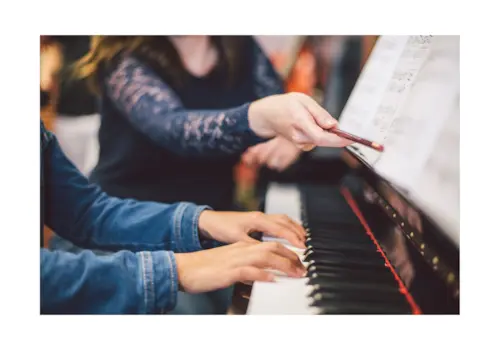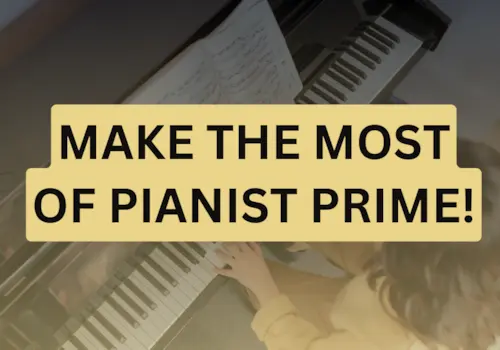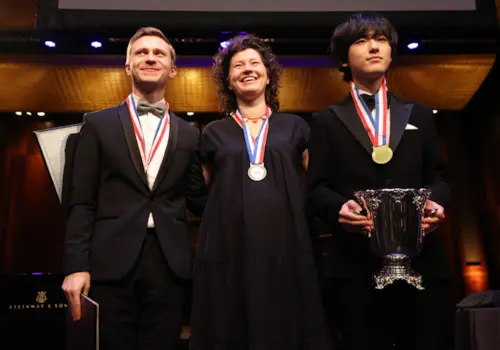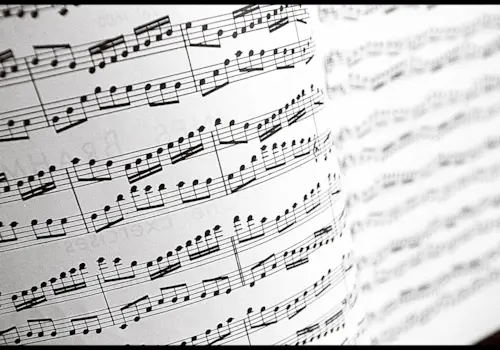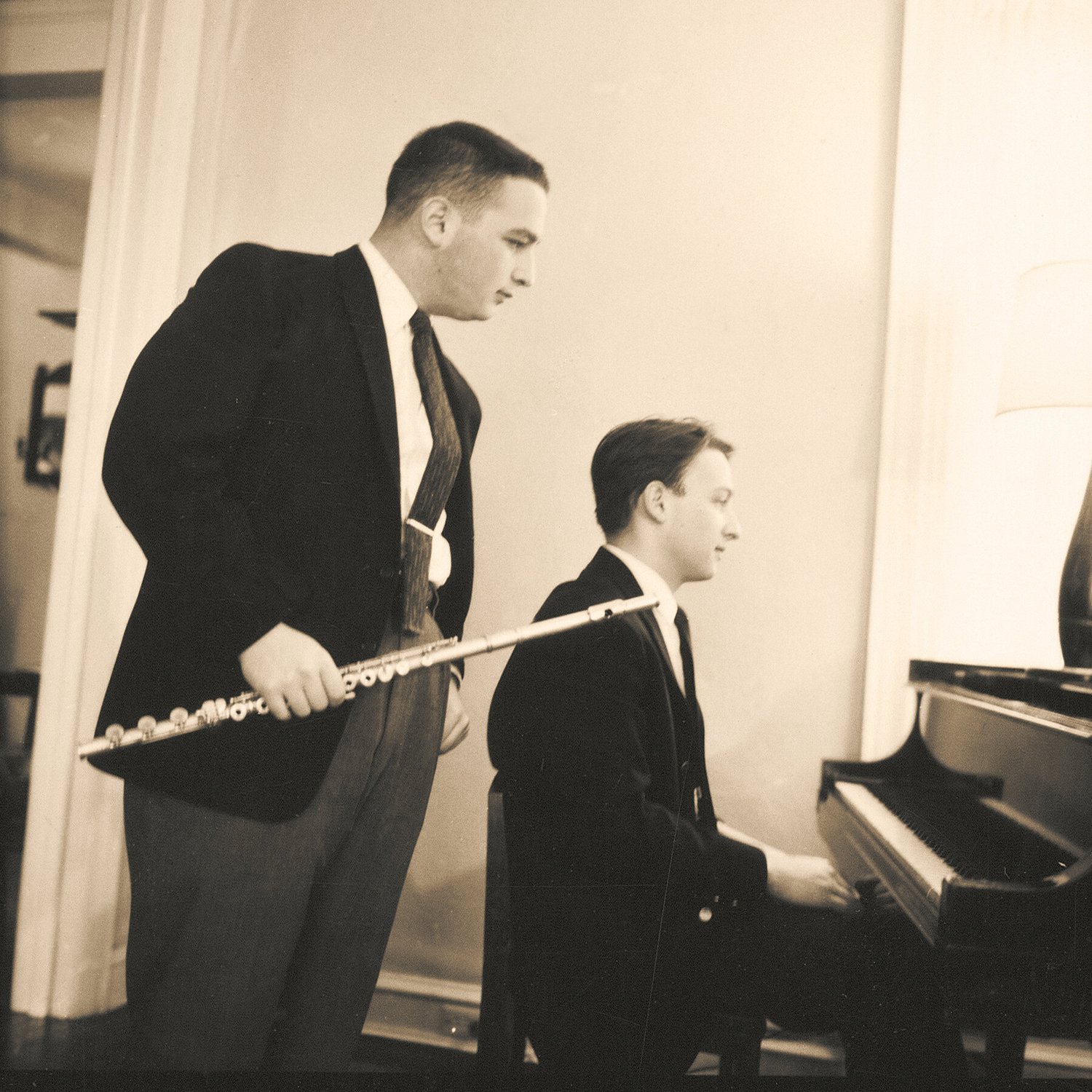11 December 2024
|
Luminary pianist and composer Conrad Tao is the 2024 winner of the prestigious Andrew Wolf Chamber Music Award, presented by the nationally acclaimed Bay Chamber Concerts & Music School. The $25,000 prize for pianists under age 40 was established in 1986 in memory of Andrew Wolf, a distinguished chamber music pianist and co-founder of Bay Chamber.
Previous winners have risen to the top of the classical music world. They include Wu Han, co-artistic director of the Chamber Music Society of Lincoln Center, Jonathan Biss, co-artistic director of Marlboro Music, and Michelle Cann, the Eleanor Sokoloff Chair in Piano Studies at the Curtis Institute of Music.
Tao is known for his brilliant interpretation of the classical repertoire, lithe and earthshaking turns around the keyboard that have been praised by critics worldwide. A U.S. Presidential Scholar in the Arts and a Davidson Fellow Laureate, the 30-year-old is renowned for his genre twisting, improvisational work in the chamber space. He often plays with The Junction Trio, a piano, violin, cello collaboration, which debuted at Carnegie Hall in May. Tao will perform at Bay Chamber next year as part of its Summer Concert Series.
“A truly remarkable pianist, Conrad Tao exemplifies the artistic vision and innovation that Bay Chamber and the Andrew Wolf award seek to honor,” says Manuel Bagorro, Bay Chamber’s artistic director. “Conrad blends technical virtuosity with profound emotional depth, making him a transformative artist of our time.”
In a classical music world overflowing with awards and competitions, the Andrew Wolf Chamber Music Award is highly regarded.
“It’s an extremely, highly respected award in the music world. It commemorates Andrew’s greatness in the perfect way,” says Michael Reynolds, Director of the School of Music at Boston University and a member of the award committee. (Other distinguished members of the award committee include pianists Anne-Marie McDermott and Gilles Vonsattel.)
The Wolf award has a unique selection process. It is the only major prize of its kind in which the decision-making process and nominees remain confidential. That would have meant a lot to Andrew, his brother says.
“It is important to protect the anonymity of those who do not win, many of whom may be exceptional performers. My brother was somewhat critical of competitions. He did not think they should be a sports event where the ‘fastest’ person wins, since there are many ways to be great,” says Thomas Wolf, co-founder of Bay Chamber.
At first, Thomas says, he struggled to pin down how best to honor Andrew, who died at age 42 after a short illness: “Here he was, only 42, at the top of his career. You say to yourself: what can I do with this tragedy?”
He decided to go with what Andrew loved best: the piano and chamber music.
Andrew performed in chamber music’s upper echelons, collaborating with giants in the classical world such as violinist Isaac Stern and cellist Leonard Rose. But Andrew, a 1966 graduate of the Curtis Institute of Music, was more than a performer. Remarkably, he and his brother Tom co-founded Bay Chamber as teens in 1961 to offer young musicians opportunities to perform.
Tao embodies exactly what the Andrew Wolf award was created to honor. Dubbed “the kind of musician who is shaping the future of classical music” by New York Magazine, and an artist of “probing intellect and open-hearted vision” by The New York Times. Tao has been a soloist with the New York Philharmonic, the Chicago Symphony Orchestra, and the Boston Symphony Orchestra, among many others. He has performed recitals at Carnegie Hall and Walt Disney Concert Hall.
Tao began his musical career at the tender age of 18-months when he started banging out children’s songs on the family piano, tunes he learned by ear. He gave his first recital at age 4 and, at age 8, made his debut with the Utah Chamber Music Festival Orchestra, performing Mozart’s Piano Concerto in A major. As a teen, he was a featured pianist, violinist and composer on the PBS and NPR series From the Top at Carnegie Hall.
Today, Tao is known for taking risks with small ensembles, classical and otherwise. His work with The Junction Trio is Tao’s most well-known foray into chamber music. The ensemble, which includes violinist Stefan Jackiw and cellist Jay Campbell, performed works by Beethoven, John Zorn and Charles Ives at Carnegie Hall in May to applause.
“The Junction Trio Brings a Little Unruliness Back to Carnegie Hall,” blared a May 6 headline in Vulture magazine. The trio “emulates the experience of watching the city swarm from a bench on a Broadway median: anger bumping into laughter, languages briefly intertwining, a hectic sequence of sprints, strides, and close encounters,” the article goes on to say.
Tao recorded an album, Bricolage, with horn quartet (and Bay Chamber favourite) The Westerlies, a genre blending foray into improvisation and experiments with sound. There is also his idiosyncratic pairing with tap dancer Caleb Teicher. One of the duo’s most high-profile performances took place on NPR’s Tiny Desk Concerts: “Bach and tap dancing might, on the surface, have nothing in common. But here, with ecstatic energy, the artists literally bring out the spirit of dance inherent in Bach's music,” NPR wrote.
Highlights of Tao’s 2024-2025 season include performances with Seoul Philharmonic Orchestra, Baltimore Symphony Orchestra, Dallas Symphony Orchestra, and Cincinnati Pops Orchestra. He returns to Carnegie Hall January 31 for a solo performance. The program for piano and Lumatone features works by Tao himself, Debussy, Robert Schumann, and Harold Alren, including Alren’s “Over the Rainbow.”
Over the next three summers, Tao will perform concerts at Bay Chamber in Camden.
Bay Chamber Concerts & Music School is a nationally acclaimed chamber music organization and a cultural hub in Midcoast Maine. Bay Chamber presents more than 50 concerts each year by top musicians from the US and abroad, including traditional chamber music ensembles, soloists and small groups from diverse traditions. Its Andrew Wolf Chamber Music Award is recognized nationally as a top prize for piano. The music school is a center of excellence staffed by experienced, dedicated instructors with advanced music degrees. Most continue to perform professionally. More than 350 students participate in lessons and ensemble classes at Bay Chamber.

